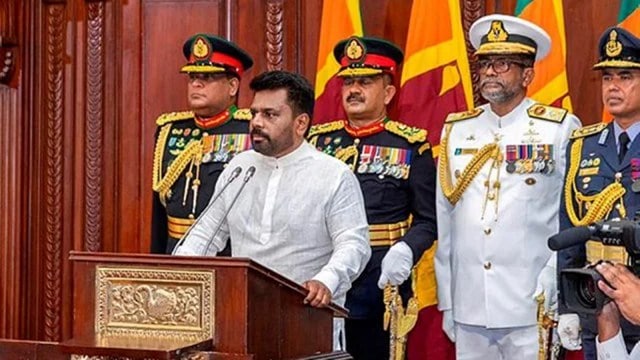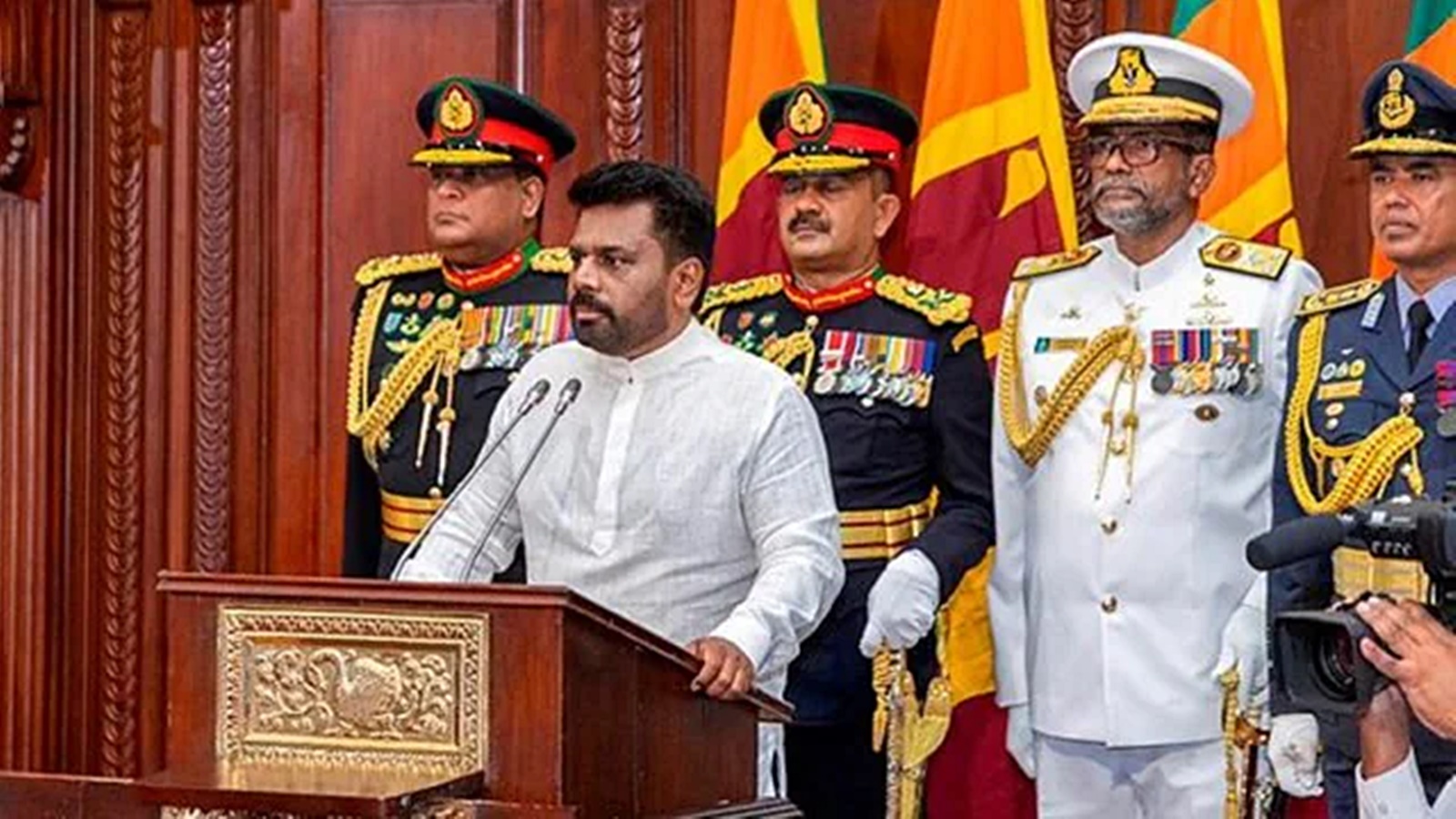
What to expect from Sri Lanka’s new leftist president
On September 22, Sri Lanka formally announced Anura Kumara Dissanayake (AKD) as the Presidential election winner, beating incumbent Ranil Wickremesinghe. The former president has been accused of indefinitely delaying local polls with the country’s top court having found him guilty of “unlawful conduct” in August. Dissanayake, in his maiden speech at the Election Commission’s auditorium, said the fact that elections were conducted at all after Wickremesinghe’s attempts to hinder polls is a victory for the people. The media weighs in on Dissanayake’s election as the country’s head, laying out expectations for and from the people.
The Island columnist Amalendu Misra (September 27) views leftist president AKD to be a “departure from political family rule”. Picking at this difference, Misra believes that while “his pro-working class and anti-political elite campaigning” may have been attractive to the youth, “his ideology may well be at odds with the foreign lenders who have kept the economy afloat for the past two decades.”
The Morning (September 23), foregrounding the fact that Dissanayake “inherits a troubled nation”, says, “On his shoulders today rests the responsibility of charting a course towards a more stable, resilient and just nation. How the NPP caretaker government deals with the ongoing agreement with the International Monetary Fund’s (IMF) EFF agreement, negotiates with Sri Lanka’s creditors, manages the complex geopolitical area of the Indian Ocean, will impact the future of the island nation.”
Emphasising the economic burdens that common people have had to grapple with in the last few years, Daily Mirror (September 23) makes clear that “the common man/woman is looking for a turnaround in their lives; this despite AKD having mentioned he would not be able to bring down prices in the immediacy of his presidency.”
India-Bangladesh relations, at large
In a speech at Sahibganj in poll-bound Jharkhand, Home Minister Amit Shah accused the Jharkhand Mukti Morcha-led (JMM) coalition government, of which the Congress is a part, of furthering “rampant infiltration” from Bangladesh. He said, “Tell me if this land belongs to tribals or Rohingya and Bangladeshi infiltrators.” In response, the Bangladesh foreign ministry lodged a strong protest with the Indian High Commission saying Shah’s statements caused a “deep sense of hurt” in Bangladesh.
Dhaka Tribune (September 25) strongly condemned these remarks calling them “reprehensible and irresponsible considering the current situation.” Tribune believes that with the ouster of Sheikh Hasina and fall of the Awami League, India-Bangladesh relations are already “under severe strain”. And so, “Bangladesh wants nothing more than maintaining friendly relations with India” granted the Indian government “rein[s] in their political leaders from stoking hate within their citizens against Bangladeshis.”
On the other hand, Prothom Alo (September 28) co-editor Sohrab Hasan discusses India’s relationship with the BNP, in the absence of the Awami League: “BNP Secretary General Mirza Fakhrul Islam Alamgir brought up the issue of thawing the ice in relations with India.” Mirza Fakhrul believes that “the ice has started to melt”, which urged Hasan to wonder how the ice came about in the first place. Urging the BNP to look inward, while acknowledging India’s role in the tense relationship, Hasan calls for the “the shortfalls” of both parties to “be filled as soon as possible.”
A worrying lack of coverage of gender-based violence
Recently, the National Girl Child Advocacy Forum, which is a coalition of 206 government and non-government organisations, focused attention towards the lack of coverage of violence against women, discrimination and curtailment of rights. The incident at Cox’s Bazar where a group of men harassed and assaulted several women and posted videos online, assault of mountaineer Shayla Bithi, and frequent rapes are telling of the disturbing reality of the country and its treatment of women. The media appeals to the state to ensure the safety of women.
The Daily Star (September 26) points to the state’s abdication of responsibility in this matter saying, “All these incidents point to a decay of moral values in society, which is sadly increasing, but also to the lack of initiatives from the state to make public places safe for women and girls.”
Dhaka Tribune columnist Nabila Tasneem Anonnya (September 26) calls attention to the danger of “mob justice” and believes that it is “a convenient tool for legitimising collective desire… This alarming trend underscores the intersection of systemic misogyny and the dangerous rise of populist vigilantism, further eroding the sanctity of individual rights for women.” Demanding more accountability from the state and the larger community, Tasneem Anonnya says, “The right to safety in public spaces is not just a women’s rights issue; it is a fundamental human right for every citizen of this country.”
adya.goyal@expressindia.com



